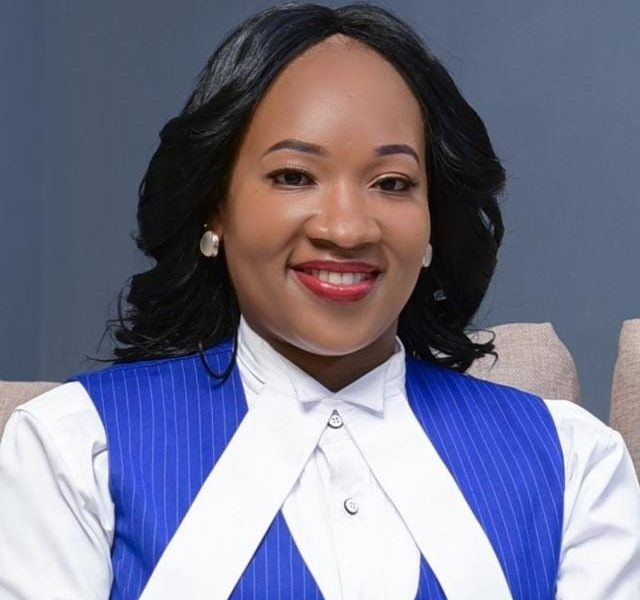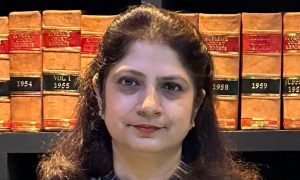This interview has been published by Prabhjot Singh, Priyanka Karwa and The SuperLawyer Team

Let us begin with the most important question, did you always dream of becoming a lawyer or, did it happen by chance?
Yes, I dreamt of becoming a lawyer when I was 9 years old. What stir up this interest was the fact that I once went to court with my mum to collect a decree and in the process, we got into a court where the magistrate was delivering a judgment on a criminal matter and the decision of the court in that matter really got me thinking as the convict was handed a jail term of 15 years and a hefty fine.
Following the pronouncement of the court decision, the convict became dramatic and started wailing in court that he was not guilty.
As a young girl, I was struck by the turn of events and vowed to become a lawyer to learn more about how the criminal justice system works. As I grew older, I came to learn that the middle-aged man was wrongly sentenced due to forged and fabricated evidence presented to the court.
Indeed knowledge is power and that education is the great equalizer. The middle-aged man was unrepresented as he could not afford a lawyer as he was a pauper and the state had not provided one to represent him.
I chose law as a career as I have always believed that lawyers are justice emissaries and in part, to develop the skills that would allow me to speak truth to power, champion the underdog, and narrow the immense gap between what is and what ought to be.
What is more, by making people’s lives a little easier, we achieve significance, creating legacies that transcend our own lifetimes. In my opinion, the law is not just a profession. In my sight, it is a medium through which I can serve my nation and people. Law is not just about rules and regulations. Law is also about rights, justice, and understanding human behavior and society.
Do you feel it is necessary to have a mentor/ guide to handhold a young lawyer in the beginning years of the profession?
Yes, a mentor is a very important person in the legal field as they guide and advise on the practical aspects of the law. This varies from litigation practice before different courts and on different subjects, preparation of pleadings, contract drafting and review, file tracking and follow-up, and also client engagement.
What are the eligibility requirements for becoming a Data Protection Counsel and what are the roles and responsibilities of a Data Protection Counsel?
I believe one does not need to have a legal background to become a Data Protection Counsel. However, there are added advantages when one has a legal background since issues touching on privacy derive their basis from human rights. The basic requirements of being a Data Protection Counsel are having the skills and technical knowledge in performing the roles of a Data Protection practitioner.
Some of the responsibilities include; advising clients on data protection and privacy laws, implementing data governance framework for data controllers and processors, drafting and reviewing privacy policies and the ancillary, training the management, board members, and staff on data protection.
Please tell us about the Association of Privacy Lawyers in Africa(APLA) in detail!
The Association of Privacy Lawyers in Africa is a non-profit association founded in 2022 with a mission to have a centralized effort towards defining, promoting, and improving the data privacy legal profession in all 54 countries in Africa. It is an invitation-only, selective, and limited membership association of the best African lawyers in data privacy and protection.
The composition of the APLA is aggressively diverse, with recognition of deserving, experienced, and highly qualified lawyers across all practices relating to Data Privacy and Protection.
What are the challenges in implementing the right policies and framework for data governance and compliance?
One of the major challenges is that the law is always lagging behind innovation, hence it tends to be reactive rather than responsive. In that regard, the implementation and uptake of the policies cause a lot of friction due to a lack of awareness of the said policies.
Also, some institutions expressed that they feel over-regulated and hence there is a lack of harmonization on the implementation of such policies as they overlap with internal processes.
As someone inclined toward Legal Tech, how far do you agree that Legal Tech and AI will create more opportunities for lawyers in the coming years?
AI is a fluid area to have a discussion on at the moment, especially in an African context. However, AI will immensely influence and change the practice of law in relation to the time taken to conclude certain tasks. For a tech-savvy lawyer, AI will impact the drafting of commercial agreements, smart contracts, pleadings, and even the general practice of law.
How would you describe your career up till now? Where can we expect you in the upcoming years?
As a woman in legal tech, the future is promising. This is due to its cross-cutting nature and intersectionality in a digital economy. In the coming years, with the knowledge and experience I have gained so far in data protection and cyber-security, I see myself running an International Legal Tech Corporate Consultancy.
Would you like to give some advice to law students?
Know your strengths! Know your craft! It’s either you are obsessed with it or you are out!
Get in touch with Cynthia Chepkemoi-


























